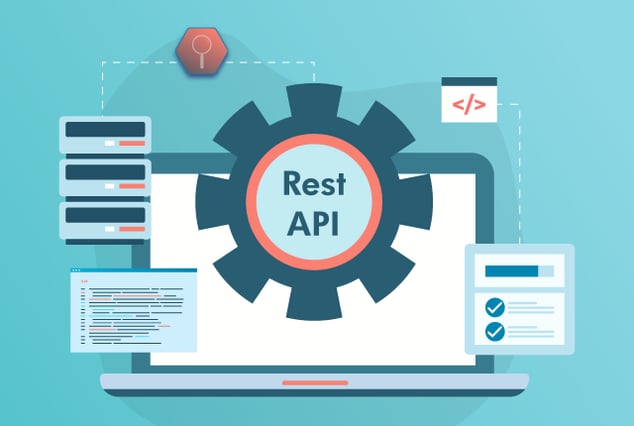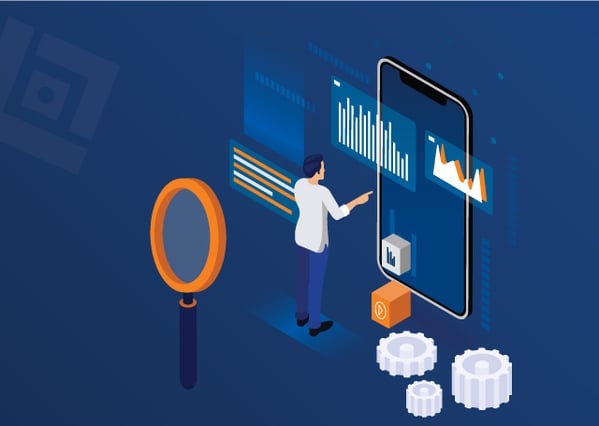
Welcome to a new era in software testing. As companies compete to offer the best software products in the market, they must also adopt the latest trends in software testing. And as technology advances at lightning speed, any hesitation about staying up to date with your QA practices can lead to quickly falling behind your rivals.
Do you want to spend your time playing catch-up to your competition? Or are you ready to be a leader in innovation and speed to market?
Keep your eye on these future trends in software testing so that your team stays ahead in both practice and product.
So, What Are the Current Trends in Software Testing?
What all future trends in software testing have in common is the value of quality. Expect to find QA teams intent on improving quality in product performance, market delivery, internal processes and automation tools with these current software testing trends.
-
DevOps Centric Teams
A constant across industries is the recent software testing growth in future development cycles. With a more prominent role within the development process, testing teams must be continuously communicating with developers in order to launch to market successfully. That’s why when it comes to future trends in software testing, we expect to see more and more companies shifting towards a DevOps approach.
In a DevOps-centric environment, QA is now a shared responsibility between Development and Operations. This mindset motivates all teams to collaborate throughout the development cycle and discover more ways to automate the testing process.
-
Agile Development and QA Teams
It’s no surprise why we expect agile development to maintain its status as one of the biggest upcoming trends in software testing. According to this report, 74 percent of companies choosing to go agile were mostly motivated by their goal to accelerate software delivery.
It can be argued that agile methodology is more of a proven process rather than one of the latest testing trends. Agile development can lead to a smoother process for adopting changing requirements, more project visibility and rapid delivery to market. Additional agile perks include increased team morale and stronger alignment across business and IT teams.
-
Growing Use of QAOps
QA no longer focuses solely on testing. In fact, QA teams are being pressed to investigate quality throughout every aspect of software development. Because software testing growth in future projects increases the demand of QA engineers, more teams are applying QAOps.
It’s easy to see why this is one of the future trends in software testing. QAOps - also known as DevTestOps - brings developers, QA testers and operations engineers together by incorporating continuous testing with a DevOps approach. This process ensures that software changes enter the production phase within the CI/CD pipeline without delays or quality issues.
-
Artificial Intelligence and Machine Learning
A list about trending technologies in software testing is incomplete without Artificial Intelligence and Machine Learning. The Artificial Intelligence market alone is forecasted to reach $190.6 billion by 2025, confirming that IT teams already recognize the value of these latest automation technologies.
As the reliability of AI and Machine Learning matures over time, we can expect future trends in software testing to include more practical implementations of these technologies within test automation. These latest automation trends can significantly influence how companies create stronger test cases and test scripts as well as process reports and data.
-
IoT Expansion
As one of the biggest trending technologies in software testing, the Internet of Things isn’t slowing down. In fact, it’s expected that the number of IoT products and services in use is to reach 20 billion by the end of 2020 - that’s a lot of connections! And each of those devices needs a strong, secure software system that can keep up with market demand and consumer expectation.
Because of this expansion, we expect future trends in software testing to focus more on finding new, more efficient solutions. More connected devices require the testing of more data and more test environments. To keep up with this software testing growth in future development cycles, we anticipate more organizations replying to cloud-based test environments in order to validate test coverage before software launch. We predict to see IoT testing strategies refine their communication protocols in order to better support these new test environments.
-
Test Automation
Test automation is nothing new to QA pros. In fact, many companies have already incorporated automation testing services within their testing practices in order to streamline the testing process, maximize test coverage and eliminate manual testing errors. Yet its increased application across industries is what you can expect as one of the upcoming trends in software testing this year.
This continues to be a trend as more advanced methods surrounding test automation emerge and as the latest automation technologies become more readily available. We anticipate for more companies to increase their use of test automation within their development cycle as QA engineers increase their automated testing skills and as test automation proves its value in cost-effectiveness, reliability and efficiency.
-
Broadening the Use of Open-Source Tools
The ability to view and edit the source code of the software product is essential for QA teams, especially when customization can allow teams to work more efficiently, onboard new testers faster and address the needs of the project more precisely. That’s why we predict open-source tools as being the trending technologies in software testing for years to come.
You can expect open-source tools to be one of the latest testing technologies this year because these tools promote collaboration within the testing community and provide opportunities for accelerated education. Software testing is becoming more personalized, innovating and experimental - and it’s often open-source tools like Selenium, Robotium, Selendroid, JMeter and Appium that stay ahead of the curve on the latest automation trends.
-
Performance Engineering
Today’s digital world demands that software delivers an excellent user experience. That’s why the latest testing trends are evolving beyond product performance verification by also evaluating software for practicality, configuration quality, convenience and consumer value.
Meet performance engineering. The customer experience is evaluated throughout the development cycles - not just during the testing phases - making performance engineering one of the future trends in software testing that really puts the consumer front and center.
-
Big Data Testing
They don’t call it “Big Data” by chance. Most mid-size companies and large organizations store an incomprehensible amount of data that’s generated and processed at high speeds. Testing teams rely on terabytes of information in order to evaluate the functionality and performance of software applications. Future trends in software testing is making room for the growing need of more time to run these tests and more resources for quality testing.
As one of the most impactful upcoming trends in software testing, big data testing continues to influence the automated testing process. We predict to see an increase in platforms and practices for big data testing that enable more effective processing, decreased application installation time and security measures for importing new data while processing current data.
-
Blockchain Testing
Industries beyond automotive and financial security are applying blockchain testing within their testing procedures, from supply chain management and insurance to energy trading and video games. And with the active development of the virtual currency Bitcoin, we already see blockchain testing as one of the most revolutionary future trends in software testing.
In a blockchain system, transactions are cryptographically connected to the previous transaction, making it close to impossible to pull off fraud. As one of the latest testing trends, blockchain testing becomes essential in a system where deployed data - even those with mistakes - can never be deleted. QA teams incorporating blockchain testing focus on validating smart records and ensuring the security of the software.
How to Keep Up with Future Trends in Software Testing
To support software advancement, the need for stronger testing practices is vital across all future trends in software testing. But keeping up with the latest testing trends can prove to be difficult, especially when staff numbers are low and your resources are restricted.
Fortunately, you don’t have to go about this process alone. Stay current with the upcoming trends in software testing by working alongside a trusted, professional QA services provider like QASource. Our experienced QA engineers can help your organization accelerate your testing process in order to meet the needs of tomorrow without cutting corners on product quality today. Get in touch with a QASource expert today.





